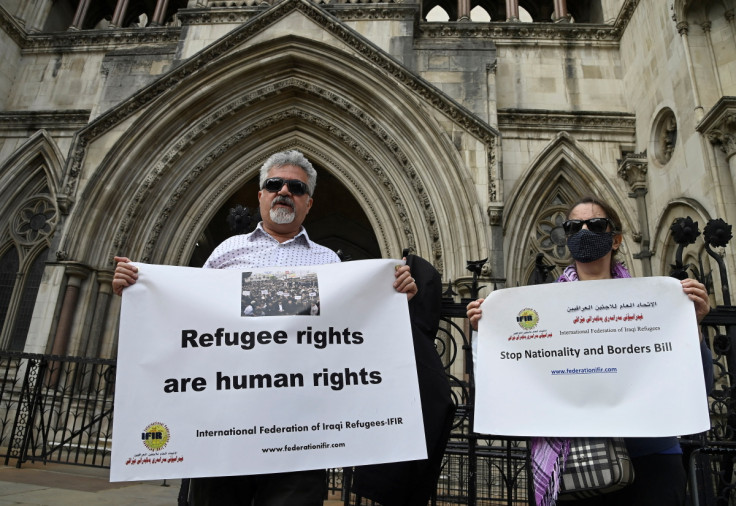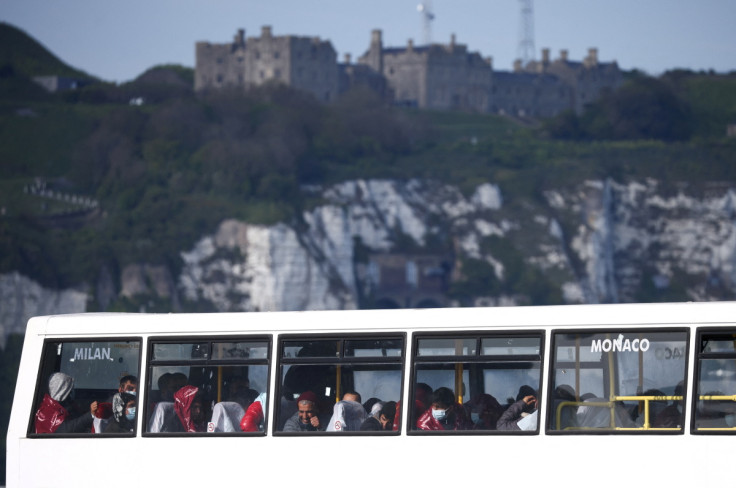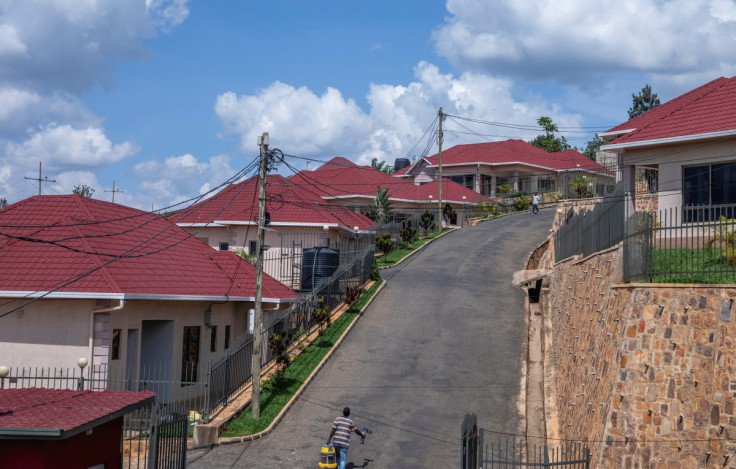UK's first flight taking migrants to Rwanda can go ahead, court rules
Britain's government overcame a legal challenge to its controversial policy to begin deporting asylum seekers to Rwanda as the High Court dismissed campaigners' attempts to win an injunction and said the first flight could leave next week.
Britain's government overcame a legal challenge to its controversial policy to begin deporting asylum seekers to Rwanda as the High Court dismissed campaigners' attempts to win an injunction and said the first flight could leave next week.
Charities and a trade union had launched a challenge earlier this week against the government's plan to send asylum seekers to the East African nation.

Judge Jonathan Swift on Friday refused to block the removal of Iraqi and Syrian asylum seekers and denied an injunction to bar the first flight to Rwanda on Tuesday.
"There is a material public interest in the Home Secretary (Priti Patel) being able to implement immigration decisions," Swift said.
He said some of the risks facing the deported asylum seekers outlined by the charities were small and "in the realms of speculation".
The decision is a victory for Prime Minister Boris Johnson four days after he faced the threat of being removed by some of his lawmakers. He has said the plan would undermine people-smuggling networks and stem the flow of migrants risking their lives by crossing the English Channel in small boats from Europe.
But Friday's ruling is only an initial and partial victory because the court granted human rights groups permission to appeal the decision to the Court of Appeal, and individual legal appeals have been submitted against the government.
The High Court will also hear a judicial review before the end of July, which could block the government's plans.
Johnson welcomed the court's decision.
"We cannot allow people traffickers to put lives at risk and our world-leading partnership will help break the business model of these ruthless criminals," he said. Britain and Rwanda struck a deal in April for the African country to accept the deportees.
SMALL BOAT CROSSINGS
The government's plan has led to an outcry from human rights groups, opposition lawmakers as well as some in Johnson's Conservative Party.
Rose Hudson-Wilkin, a senior leader in the Church of England who is based in Dover, where many of the migrants have arrived, said she felt "deeply ashamed" of the court's decision.
"It feels inhumane," she said.
About 30 asylum seekers have been selected for removal. During the hearing on Friday, the government agreed to drop the immediate deportation of at least five other people.
During the hearing, Raza Hussain, the lawyer acting for Care4Calais, Detention Action and the Public and Commercial Services Union (PCS), which represents civil servants in Britain's Home Office (interior ministry), said the scheme was unsafe and irrational.
Hussain said the government had made "misleading and inaccurate" claims that the United Nations High Commissioner for Refugees had given it the green light, and that it was acting on false assurances about Rwanda's ability to offer protection to asylum seekers and process their claims.

Government lawyer Mathew Gullick said the criticisms and concerns were backward-looking, and did not reflect how the migrants would be treated. There was an "important public interest" in deterring illegal immigration, he said.
Last year, more than 28,000 migrants and refugees made the crossing from mainland Europe to Britain. In November, 27 people drowned in the Channel when their small rubber dinghy deflated, and many others have needed to be rescued from the narrow seaway, one of the world's busiest shipping lanes.
Under the government scheme, anyone who arrived in Britain illegally since Jan. 1 could be relocated to Rwanda.
The government hopes the plan will deter the Channel crossings, although more than 3,500 people have reached Britain in small boats since the middle of April, when the Rwanda scheme was unveiled, according to government figures.
Israel previously attempted a similar scheme to send asylum seekers to Rwanda. But in 2018 the Israeli Supreme Court blocked the policy, saying it was not compatible with the United Nations' refugee convention.

Copyright Thomson Reuters. All rights reserved.




















